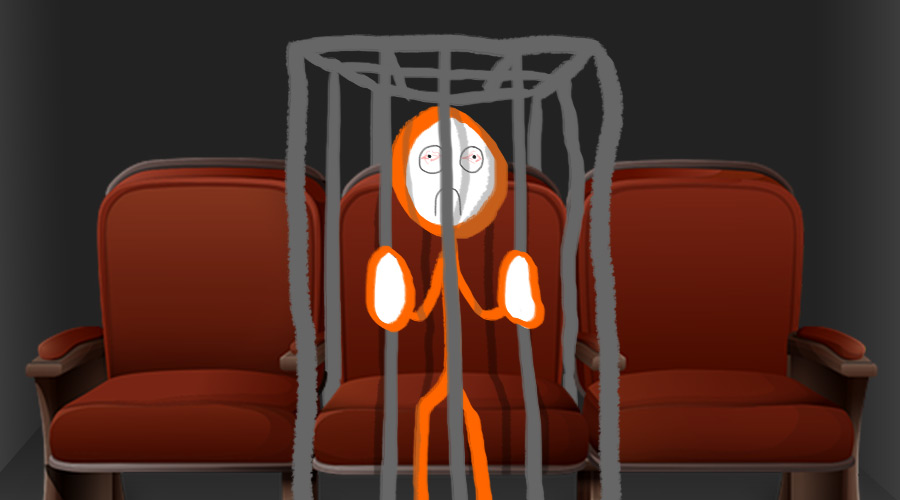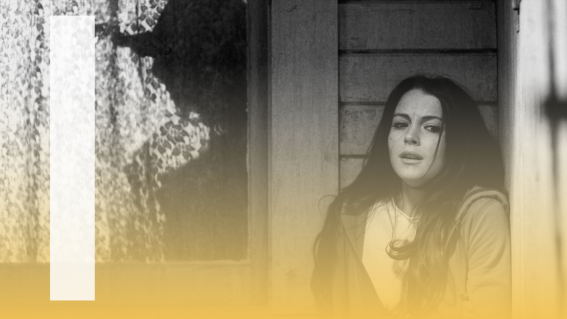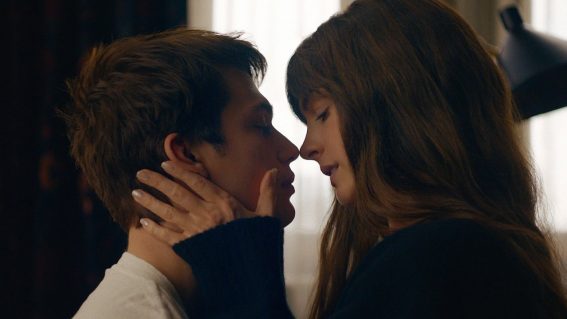I Was Trapped in an Arthouse Film (and Miraculously Survived)

I pride myself on trying new things at film festivals, doing my very best to go into these arthouse movies blind. Sometimes I revel in new, pretentious experiences (The Tree of Life, 2012’s Leviathan); others simply give me a frustration tumour (In the Fog, Himizu). But this year delivered something uniquely inescapable: A Pigeon Sat on a Branch Reflecting on Existence.
I wasn’t aware of the director or that the film was part of a trilogy. All I had to go on was this Time Out quote: “Unspooling in 37 comic vignettes, these are Monty Python sketches as written by an existentialist philosopher.” You couldn’t sell me a $1 marshmallow bouncy castle better than that line did for this movie. So I bought a ticket.
In the packed cinema, where leg room is sparse, I wedged myself into the centre of a very long row. This is the type of seating position that forces you to take a toilet break beforehand (a tactic I used last year for Winter Sleep), because once the movie starts, a subtle exit is impossible.
It’s important to note that comedy is one of, if not the most, subjective genre in cinema. If the humour doesn’t align with your own, it’s pretty much impossible to judge whether the jokes work or not, leaving you with only the storytelling to latch onto. When the comedy doesn’t hinge on a story, all you’re really left to say is “I don’t get it.”
And when A Pigeon Sat on a Branch Reflecting on Existence started, I knew – from the very first minute – that I wouldn’t get it. And that I was never going to get it. I was on a runaway train, and I had just passed a ‘Dead End’ sign.
Actually, replace ‘runaway train’ with ‘unstoppable theme park ride’ and ‘Dead End’ with ‘It’s a Small World After All’.
The audience I was with were having a great time. Clearly, they were in tune with the film. But since I was a one-string banjo, all I saw were a series of flat scenarios presented like an ashy snow globe filled with diseased humans and set to the pace of a bemused tortoise.
Like I said – I didn’t get it.
This left me with the worst feeling a movie can give you: stultifying boredom. This is not your regular watch-checking boredom – this is that stomach-clenching boredom that causes little kids to groan loudly and fidget around like an octopus during a spin-dry cycle. However, I’m a grown adult, and as much as I wanted to octopus-groan my boredom away, I’m too old for that to be a socially-acceptable response.
So I did what I’ve always done with difficult emotions: I suppressed it and hoped it just… went away.
But it didn’t. It just twisted itself inside me, turning into some mutated hybrid of frustration and fear.
To make this fear-stration worse, the film has no general storyline. That means, there’s no way of telling whether the film was reaching its end or if it’s only just reached halfway.
Like any prisoner in solitary confinement, this inability to recognise time messed with my mind. It took me from fear-stration to cramp-fusion – a state of confusion paired with a series of butt cramps.
It may have been one or two or nine hours into the film that I simply accepted my fate. Clearly, I had entered some sort of phantom zone or hyperbolic time chamber or the third layer of dream consciousness with no spinning top in sight. All of relative time had slowed, subjecting me to a never-ending slideshow of what I resided to call ‘philosophical taxidermy without a punchline’. This was my life now – I could not escape it.
Then the movie finished.
I wanted to cry. But I didn’t, because that would have also been a socially-unacceptable response. Instead, I bolted on the straightest face I could and wobbled out of the cinema.
Did I enjoy the film? No. Hell no. Unbelievably no. But this is a rare case where I couldn’t hold it against the film, either. And although A Pigeon Sat on a Branch Reflecting on Existence mentally crushed me under the weight of my own boredom, I’ve got to give the movie credit: it’s a film festival experience I’ll never forget.














